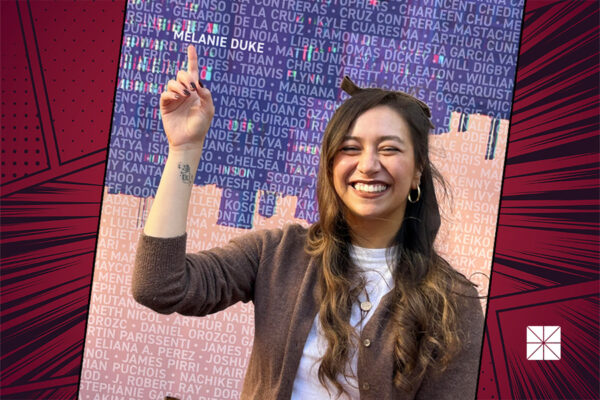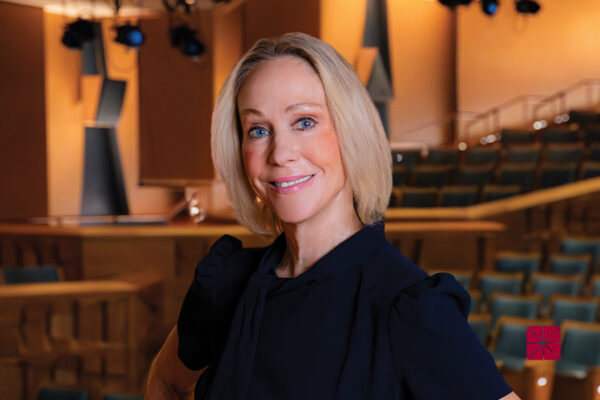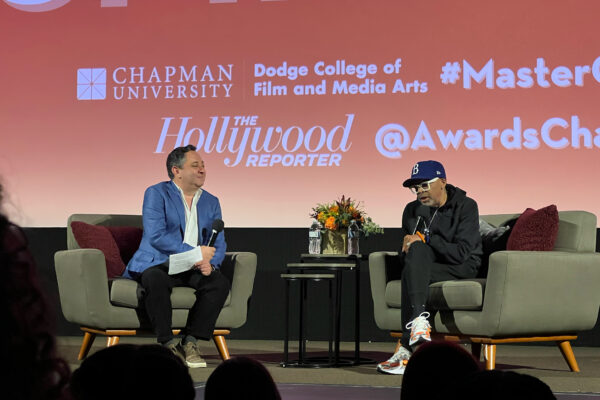Daniel Wellman, Ph.D., associate professor of chemistry in the Schmid College of Science, traveled to Cuba with his family last month and shares his journey here. It’s a rare and fascinating trip — it is still relatively difficult to get permission to travel to Cuba from the U.S.; Dr. Wellman, whose wife is Cuban, falls into one of the categories to whom general licenses to travel are issued by the U.S. government. — Ed.

My family and I spent 15 days in Cuba during the last half of January. It was a journey of rediscovery and discovery for my wife, and discovery for the rest of us. The purpose of our trip was to celebrate our daughter Eden’s graduation from Chapman and to visit relatives. My wife left Cuba as a child of twelve 48 years ago on one of the “Operation Pedro Pan” flights to Miami. This was her first time back to Cuba since then. Her late father was a former Cuban Air Force and Cubana Airlines pilot who was involved in smuggling arms and supplies to Castro and his forces during the late 1950s, later joining them in fighting and as they triumphantly drove to Havana. He was ardently supporting the overthrow of the previous dictatorship with its corruption, secret police, and inhumane treatment and disappearances of many Cubans. He fought for freedom, equality, and having a government elected by the people. When Castro declared that he was a communist my father-in-law became active in anti-Castro activities in Cuba, a very dangerous activity. We visited the house in Havana where my wife last lived before leaving. The current occupants graciously welcomed us to come in and look about. My wife showed us the loft where as a little girl she was cleaning her bird cage and the parakeet she had taught to say her name “Cuqui” flew out the window. This was also the house she vividly remembered when the Cuban soldiers with twitchy fingers on the triggers of their machine guns came to arrest her father one very late night. The hardship her family then endured while her father served time as a political prisoner on the Isle of Pines (now called the Isle of Youth) was what convinced her mother to send her youngest child away by herself in 1961.

The records of the Catholic churches in Cuba are wonderful archives. Here is what we found in one Havana church and one in Trinidad de Cuba (her father’s birth place):
- The 1942 marriage certificate of my wife’s parents
- The 1915 marriage certificate of her paternal grandparents with some family history
- The 1919 baptismal of her father with family history and his marriage information inked into the margin of it
From a wonderful woman we met, currently living in the former house of my wife’s childhood best friend, my wife was given her father’s 1942 formal commission document as a second lieutenant into the Cuban Air Force (with his photograph attached), his diploma like certification for instrument flying, his certification as a flight instructor, a 1947 photograph of his squadron with all those in the photograph identified on the back, along with several more items. It seems my wife’s mother had given the documents to the childhood friend’s mother for safe keeping many years ago. What a treasure for my wife and all of us.

When we rode in taxis wherever we went in Cuba my wife would sit up front speaking with the driver in the fast-paced Cuban form of Spanish. In her genuine and sweet demeanor they would talk and the drivers would almost always lighten up and laugh with her about things. When she commented about the over-crowded buses in Havana to one taxi driver he laughed and said “when Cubans ride the bus we say for us it is going to the gym because we get a good work out of the arms holding tightly to the rail and a massage at the same time as all the bodies pressed together bounce up and down.” Most of them (and other folks we met in Cuba) were amazed at her return after 48 years.
After several days seeing and experiencing much of Havana we took a 6 ½ hour bus ride to the quaint town of Trinidad de Cuba, located on the southern coast and where her father was born. We passed through a number of small towns and the large city of Cienfuegos, as well as beautiful countryside. When we arrived in Trinidad my wife found out why her father had kept chickens and goats in their Havana yard, as they were in everyone’s yard and fields there. We loved Trinidad and its people –

the sound of horse’s hooves clopping on the narrow cobblestone streets as a grandfather proudly rode by, sitting on the back edge of the saddle with his two grandchildren seated in front of him, the horse drawn carts with goods for sale, one loaded with gravel, and other horse carts carrying passengers like a bus. We hired a taxi to take us up one of the mountains overlooking Trinidad to conduct a service in honor of her parents and an aunt who had also been born in Trinidad. We did many other things while in Cuba with many other highlights when we walked around Havana, Trinidad, and Varadero, but I will close with some information and observations.
- More than 80% of all Cubans today were born after Castro took over and the current system is all they have ever known. Many of the grand buildings, some of which are modest to large single family homes made from marble and limestone, are slowly decaying. There is mandatory education for children and Cuba has one of the highest literacy rates in the world. While lacking in the newest medical technology they have very good doctors, one of which came to our room with a nurse to administer care to Eden after she had been ill and mostly bed-ridden with a fever and stomach pain for 5 days from an unknown cause. After evaluating her, the doctor gave her a shot with antibiotics and nutrients and packets of electrolytes to add to water. The doctor predicted Eden would be well in a day or two, which was true. This doctor and nurse had been working for over 12 hours straight through the night and while both were close to exhaustion when they came to us they were very knowledgeable, empathic, and dedicated.
- There are two forms of currency in Cuba. The Cuban peso is what the residents mostly use and the convertible pesos (CUCs or “cukes”) are what visitors use. It takes 24 Cuban pesos to equal one CUC peso. The Cuban currency, whether standard or CUC pesos, is worthless outside Cuba. US dollars had been the second form of currency in Cuba for many years but that changed under former President Bush, in 2004 or 2005. There is a 10% tax when converting US dollars to CUCs. No other world currency is assessed this tax when converted to CUCs.
- Cubans receive their housing, food, and other rations from the government with most earning an average

Dr. Wellman wore his Chapman pride in Cuba! of about 8-12 CUCs per month, whether they are a university professor or a street sweeper. Fidel is very anti-commerce and capitalism of any type, not even allowing farmers to sell produce directly to the Cuban people. Only recently under Raoul have the citizens been able to purchase produce directly from farmers and I believe there is slow movement towards some form of a market economy.
- The internet is slowly becoming available in Cuba with most internet speeds at what we call “dial-up”. Tourists we met from Germany, France, Switzerland and elsewhere have cell phones with roaming capabilities in Cuba, but those from the US do not. Cell phone growth is slowly increasing with Cubans but very few as yet have them – mostly it seems are taxi drivers.
- During one of our long bus rides I sat next to a German tour guide who was on vacation in Cuba. Here is what he told me. From his more than 20 years of taking tour groups around the world Cuba and Vietnam were in very similar conditions when the Soviet Union fell apart and Soviet aid disappeared (Cubans call this the “special period”). Both had lost their communist sponsor and the inflow of revenue and goods that came with it. Vietnam adopted what it called “capitalism improved by communism” whereas Fidel would have nothing to do with commerce and capitalism. The tour guide said Vietnam has a convincingly viable economy with some free markets and stocked store shelves while Cuba is languishing with empty

Another Varadero beach scene. shelves in the stores, and with many Cubans wanting jobs in tourism in order to earn tips from the tourists provided in the higher valued CUCs.
- Zipping along the Malecon in a coco taxi as waves crash over the sea wall is a must thing to do for anyone visiting Havana. You can watch a clip of others doing this on YouTube.
- There is strong central control by the government within the country. For example, when I visited the University of Havana’s chemistry building I asked the guard if I may meet with some of the chemistry faculty. He did not know what to do with my request but fortunately there was an organic chemist waiting in the building lobby and we had a very good discussion about our research interests. When I asked for a tour of the chemistry building he checked and was told “permission would have to come from above” and would take approximately 2 weeks.
- While waiting in the terminal of Jose Marti airport to return home a young Cuban man holding his 3 month old baby asked my wife to assist his blind wife in going to the ladies room. Without hesitation my wife slowly walked arm in arm with the young mother, talking all the way to and from. When my wife came over to us she said “I must help those people. They are leaving Cuba with nothing.” Again without hesitation my wife emptied her wallet and pressed her money into the young father’s hand wishing them the best.
- The Cuban embargo instituted by the US government almost 50 years ago has done nothing to weaken Castro’s hold on Cuba but rather has had the opposite effect allowing him to remain in power for 2 ½ generations with effective anti-American rhetoric and propaganda. He is still popular with the masses. When the Castro brothers are gone I fervently hope the transition to a new form of government will be peaceful.
- Cuba is a very beautiful country populated by very warm, fun loving, and friendly people. The Cuban people are healthy and well-educated. We felt welcome in most of the places we visited. I will definitely go back.




Add comment